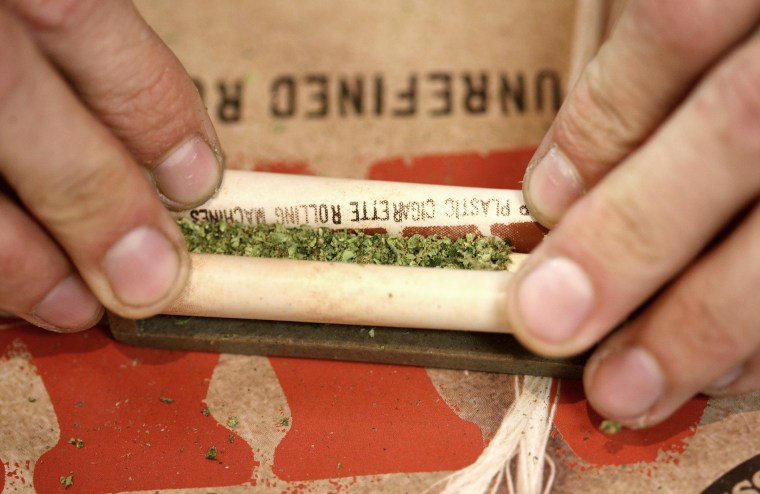New York Gov. Andrew Cuomo unveiled plans to legalize medical marijuana by executive order on Wednesday, sidestepping the state legislature in bringing weed to the Empire State.
"Research suggests that medical marijuana can help manage the pain and treatment of patients with cancer and other serious illnesses,” Cuomo said in his State of the State address. “We will establish a program allowing up to 20 hospitals to prescribe medical marijuana and we will monitor the effectiveness and the feasibility of a medical marijuana program.”
Cuomo – who previously opposed similar measures – will make New York the 21st state to legalize marijuana for medicinal purposes, reflecting broader changes in American attitudes toward prohibition and drug use.
The Democratic governor's action bypasses the state legislature, where past legislative attempts to legalize medical marijuana have stalled. Unlike in other states with pot laws already on the books, restrictions will limit the drug's availability to only 20 hospitals to prescribe marijuana to patients afflicted by cancer, glaucoma, and other painful diseases, according to early reports on the plan. The criteria for which ailments will qualify for marijuana usage will be determined by the state’s Department of Health.
With the executive order, New York State will have undergone an almost complete turn around of its drug laws in just a decade. In 2004, the passage of the Drug Reform Act reduced some of the country’s most draconian minimum drug sentencing provisions. However, according to the American Civil Liberties Union, New York still has the highest arrest record for marijuana related charges.
More than 80% of New Yorkers support the legalization of medical marijuana, according to a poll conducted by Siena College.
New Yorkers' attitudes toward drug laws reflect those across the country. According to a poll conducted by Gallup in October, 58% of Americans believe marijuana should be legalized, a 10-point increase from the previous year. In contrast, only 31% of Americans were in favor of legalization in 2000.
Twenty other states and the District of Columbia have legalized the use of medical marijuana. In 2012, voters in Colorado and Washington became the first to defy federal law by legalizing recreational marijuana through referendum. On Jan. 1, Colorado’s weed shops opened up for the first time to see booming sales.
The trend toward marijuana liberalization has received mixed reactions. David Brooks, a columnist for the New York Times warned against the moral hazards of marijuana legalization.
Others have celebrated recent measures against prohibition. In New York, Democratic State Assemblyman Richard Gottfried – who in the past has sponsored legislation to legalize marijuana in his state – applauded the governor’s change of heart.
“Governor Cuomo's endorsement of the medical value of cannabis for many patients with serious debilitating and life-threatening conditions gives new strength to the issue,” said Gottfried in a written statement. However, he noted that more could be done and encouraged the governor to push for legislation on medical marijuana.
“I urge Governor Cuomo to join the effort to enact new comprehensive tightly-regulated legislation this session in Albany.”
